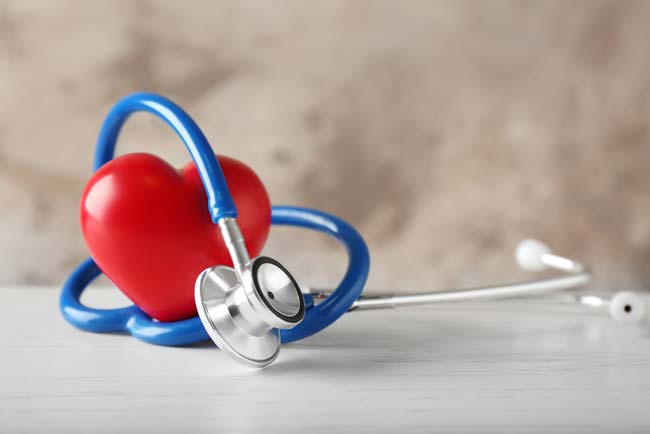When your heart’s beating normally, you rarely pay attention. But when it skips a beat, beats really fast or really slow, or is different in some other way, it can be alarming.
What’s behind those heart palpitations? Well, we’ll talk about that in a minute, but first things first — they usually aren’t a big deal.
Have you ever felt like your heart was pounding? Or like it’s racing? Skipping a beat? Going really slowly?
All of those sensations describe heart palpitations.
Most people experience these every once in a while, with some people having them more often than others. They usually aren’t serious, but can occasionally be a signal that’s something’s askew in the heart or elsewhere in the body.
Read on to learn more.
The symptoms of heart palpitations
We mentioned this above, but palpitations present themselves in many different ways. If you’re experiencing them, you may feel like your heart is:
- Fluttering
- Beating too quickly
- Beating too slowly
- Skipping beats
- Pounding
You may not just feel them in your heart, though. You can also feel the fluttering or pounding sensations in your chest, throat or neck.
These feelings may occur at any time, whether you’re lying down, sitting down, standing up or walking.
The causes of heart palpitations
While heart palpitations can present themselves in a variety of ways, they also have a variety of causes. And most of the causes aren’t serious.
You can experience palpitations for reasons as benign as having too much caffeine, chocolate or alcohol.
Heart palpitations sometimes also occur due to:
- Stress, anxiety or worry
- Dehydration
- Fever
- Low potassium levels
- Low blood sugar
- Intense physical activity
Certain medications, like diet pills, antibiotics, OTC cold meds, thyroid hormone or asthma drugs, can also be the culprit behind palpitations.
And finally, certain medical conditions, like thyroid issues, can also lead to heart palpitations.
When to see a doctor for heart palpitations
Heart palpitations in and of themselves usually aren’t reason for alarm. But if you’re experiencing them regularly or for a long period of time — or they’re accompanied by chest discomfort, fainting, shortness of breath or dizziness — seek medical attention.
Though it’s not as common, palpitations can sometimes be a sign of more serious health conditions, including arrhythmia.
An “arrhythmia” is any change from the normal sequence of electrical impulses in the heart. When the heart doesn’t beat properly, it also doesn’t pump blood effectively. This means that blood doesn’t move efficiently to the lungs, brain or other organs in the body, all of which need blood to work properly.
To determine whether an arrhythmia is to blame for your heart palpitations, a doctor will perform a physical exam; talk with you about your symptoms, medical history and lifestyle; and ask you about specifically about when, how often and under what circumstances your palpitations have occurred.
He or she may also have you undergo blood work, a chest X-ray, an electrocardiogram or other monitoring to determine why the palpitations are occurring.
Preventing heart palpitations
If your doctor is able to determine an underlying medical cause for your palpitations, that cause will be treated. But in less severe cases, you can take steps to make a recurrence less likely.
- Limit anxiety and stress whenever possible. You may find meditation, physical activity, aromatherapy and other relaxing activities help you accomplish that goal.
- Limit intake of palpitation-inducing foods, drinks, and substances. This may include alcohol, caffeine, nicotine or even chocolate. You don’t necessarily need to cut these items out completely, but it will be helpful to limit them.
- Avoid stimulating medications. These medications include OTC cough and cold meds, along with certain herbs and supplements.
- Get plenty of sleep. Experts recommend that most adults get between seven and nine hours of quality sleep each night.
- Know your medications. Talk with your doctor or pharmacist about whether any of your medications could lead to palpitations and whether alternatives are available.
- Stay hydrated. Don’t wait until you feel thirsty — by then you’re probably already dehydrated. Instead, sip water continuously throughout the day, particularly before and during physical activity.
Dr. Harish Manyam is a cardiologist specializing in Cardiac Electrophysiology at Erlanger Health System. If you think you’re experiencing heart palpitations occasionally, talk with your doctor about them at your next checkup. Think it might be something serious? Book an appointment with a cardiologist with the Erlanger Heart and Lung Institute.







